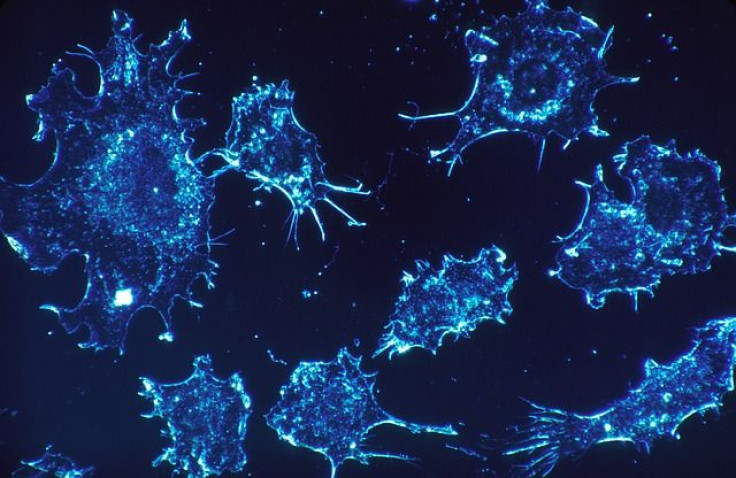Immunotherapy Treatment Increases Chances Of Survival For Advanced Stomach Cancer Patients

Stomach cancer diagnoses can be devastating for a patient and their family. Not only is the condition painful and arduous, but survival rates can be relatively low, depending on the stage in which the cancer is discovered. However, a new experimental therapy based on the body fighting the disease with its own immune system, is helping some patients with stomach cancer live longer than ever expected.
For the phase 2 clinical trial, 161 patients with advanced stomach cancer were given the innovative treatment. The study was presented Sunday at the annual meeting of the American Society of Clinical Oncology in Chicago. The research was funded by drug maker, Ganymed Pharmaceuticals AG, Healthday reported. The immunotherapy treatment employs an antibody called IMAB362, which targets claudin 18.2, a specific protein found on the surface of cancer cells.
Part of what makes cancer so hard to fight is its ability to “hide” from the immune system. Because the immune system does not recognize cancer as being a threat, it does not try to fight it off. This new treatment trains the immune system to recognize a specific protein on the surface of gastric tumors. Once the protein is spotted, the immune system can “tear off the disguise and expose the cancer as ‘the enemy invader’ it really is,” Dr. James Grendall, chief of gastroenterology, hepatology, and nutrition at Winthrop-University Hospital in Mineola N.Y., told Healthday.
Stomach cancer, also known as gastric cancer, occurs when cells in the stomach begin to grow out of control. According to Cancer.org, about 26,370 cases of of stomach cancer will be diagnosed for 2016 and, unfortunately, about 10,730 of these patients will die.
What’s more, because the protein, claudin 18.2 is not found in other parts of the body, the risk for dangerous side effects is minimal. Because the treatment may prove to be effective on different types of cancer, the team plans to test the antibody on patients with pancreatic cancers as well.
"This therapeutic antibody has the potential to improve the outlook for patients with a variety of currently difficult-to-treat cancers,” added Grendall. A phase 3 trial on more stomach cancer patients is scheduled to begin early next year.
Immunotherapy-based treatments have been at the forefront of cancer research for a few decades now. For example, a recent clinical study found that a form of immunotherapy was able to produce a “significant clinical response” in 70 percent of patients suffering from multiple myeloma, a particularly deadly type of cancer that affects the plasma cells in the bone marrow. For this treatment, patients' immune system T cells were genetically altered to contain a receptor for a protein found on the surface of tumors of around 60 percent of patients with advanced myeloma.
Although the study was small, the promising results suggest that this treatment may show promise for patients, not only with multiple myeloma, but eventually perhaps for patients suffering from other types of cancer.



























